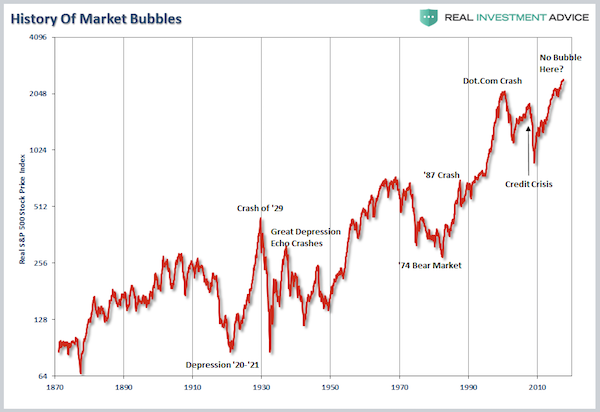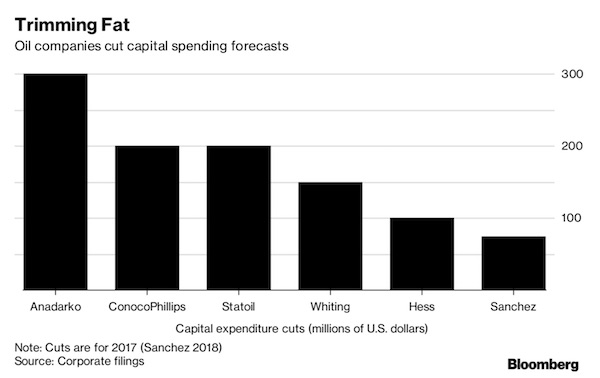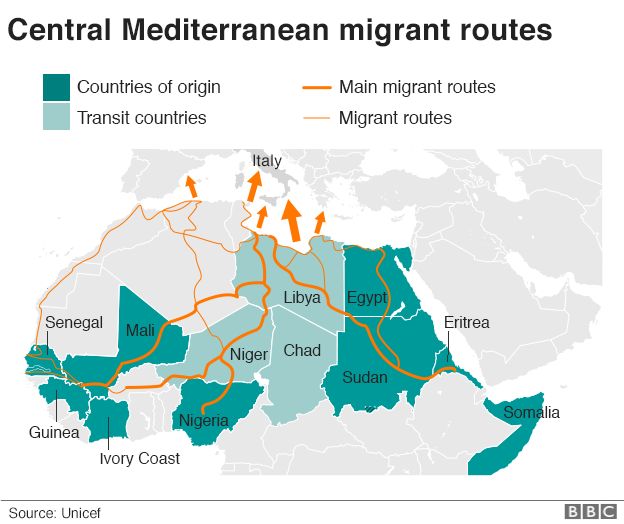
Gordon Burt Bond Street, Wellington, New Zealand c1957

Three things:
1) Boy, was I right to say US politics should be observed through the eyes of Shakespeare.
2) Playing with people’s health care, let alone for petty political reasons, is not forgiveable.
3) What a bunch of has-beens these people are. Limit their terms, close the revolving doors, and let the future be decided by people young enough to actually have a future. Oh, and get money out of politics.
• Senate Blocks ‘Skinny’ Obamacare Repeal Bill In Dramatic Late-Night Vote (CNBC)
The Senate blocked the latest Republican attempt to repeal Obamacare in a dramatic floor vote early Friday morning, yet again stalling — for now — the key campaign goal that eludes the GOP six months into the Trump administration. Three GOP defections — Sens. Susan Collins of Maine, Lisa Murkowski of Alaska and John McCain of Arizona — sank the measure in a 49-51 vote. McCain, who recently returned to the Senate after getting diagnosed with brain cancer, cast his “no” vote to audible gasps on the chamber’s floor, according to reporters there. Senate Republicans released the plan late Thursday just hours before voting on an amendment to take up the bill. The GOP could only afford to lose two votes on the proposal, which many senators suggested they would not even want to see become law.
The measure came after separate pushes to immediately replace the Affordable Care Act or repeal it with a two-year transition period failed amid GOP divisions. Several Republican senators slammed the plan and appeared to not even want it to become law. It marks another blow to the sprawling agenda that Republicans hoped to accomplish when President Donald Trump won the White House and the GOP held both chambers of Congress in November. After the vote, a visibly frustrated Senate Majority Leader Mitch McConnell called it “clearly a disappointing moment.” “So yes, this is a disappointment, a disappointment indeed … I regret that our efforts were simply not enough this time,” McConnell said.

But this they do agree on. More reasons to get rid of the old order in Washington.
• Russia Promises Retaliation As Senate Passes Sanctions Bill (G.)
Vladimir Putin has accused US lawmakers of “insolence”, and promised Russia will retaliate if the latest round of US sanctions against Russia are signed into law. The House of Representatives voted by 419 votes to three on Tuesday to pass the new sanctions bill, which targets Russia as well as North Korea and Iran. The US legislation was passed overwhelmingly by the Senate on Thursday, and will now go to Donald Trump for his signature. Trump, who enjoyed two warm conversations with Putin at the G20 summit earlier this month, is likely to face a major backlash if he attempts to veto the legislation, with his administration already embroiled in a Russia scandal. “We are behaving in a very restrained and patient way, but at some moment we will need to respond,” said Putin at a press conference with his Finnish counterpart, Sauli Niinistö.
“It’s impossible to endlessly tolerate this kind of insolence towards our country,” Putin said, referring to the sanctions. “This practice is unacceptable – it destroys international relations and international law.” Putin was vague on exactly how Russia might respond. The newspaper Kommersant quoted two unnamed sources saying a range of potential responses was under consideration in Moscow, including expelling US diplomats, seizing diplomatic properties, increasing restrictions on US companies working in Russia and halting enriched uranium shipments to US power plants. [..] Putin and other Russian officials have repeatedly denied any meddling in the US election, while US intelligence agencies say they have overwhelming evidence of a coordinated Russian campaign. Putin on Thursday described the allegations as “hysteria”, and said: “It’s a great pity that Russian-US relations are being sacrificed to resolve questions of domestic politics.”

And you thought the US housing bubble was over?
• US Housing Bubble 2.0 (Mark Hanson)
The striking Case-Shiller regional charts shown below, courtesy of MHanson.com, make Mark Hanson angry: “so, 2006/2007 was the largest house price bubble ever, but there is nothing to see here in 2017?” and sarcastically points out that “if this isn’t a house price bubble, I would hate to see one.” His bottom line: “If 2006/07 was the peak of the largest housing bubble in history with affordability never better vis a’ vis exotic loans; easy availability of credit; unemployment in the 4%’s; the total workforce at record highs; and growing wages, then what do you call “now” with house prices at or above 2006 levels; worse affordability; tighter credit; higher unemployment; a weakening total workforce; and shrinking wages? Whatever you call it, it’s a greater thing than the Bubble 1.0 peak.”

[..] Income required to buy the avg priced builder house is at historical highs and has completely diverged from the multi-decade trend line. Historically low growth & rebound relative to resales suggest “lack of supply” meme in the Existing Sales market is over-stated.
“Peak builder is here.”
1) New Home Sales “up to” 1995 levels after $15 TRILLION in debt and Fed liquidity aimed largely at the sector.
2) Builder pricing power largely flat for 2-years.
3) Income required to buy the average priced builder house has completely diverged from the multi-decade trend line. This obviously explains why sales are only at 600k SAAR now vs 1.2 million in Bubble 1.0. Reversion to this mean will occur…either thru a sharp rise in income; new exotic loan programs, which make payment less; or house prices dropping.

4) Last time builders were this euphoric was the peak of the biggest credit bubble in history.


Rinse, forget and repeat.
• Is This The Bubble? (Lance Roberts)

Every major market peak, and subsequent devastating mean reverting correction, has ever been the result of the exact ingredients seen previously. Only the ignorance of its existence has been a common theme. The reason that investors ALWAYS fail to recognize the major turning points in the markets is because they allow emotional “greed” to keep them looking backward rather than forward. Of course, the media foster’s much of this “willful” blindness by dismissing, and chastising, opposing views generally until it is too late for their acknowledgement to be of any real use. The next chart shows every major bubble and bust in the U.S. financial markets since 1871 (Source: Robert Shiller)

At the peak of each one of these markets, there was no one claiming that a crash was imminent. It was always the contrary with market pundits waging war against those nagging naysayers of the bullish mantra that “stocks have reached a permanently high plateau” or “this is a new secular bull market.” Yet, in the end, it was something that was unexpected, unknown or simply dismissed that yanked the proverbial rug from beneath investors. What will spark the next mean reverting event? No one knows for sure, but the catalysts are present from: • Excess leverage (Margin debt at new record levels) •IPO’s of negligible companies (Blue Apron, Snap Chat) • Companies using cheap debt to complete stock buybacks and pay dividends, and; • High levels of investor complacency.
Either individually, or in combination, these issues are all inert. Much like pouring gasoline on a pile of wood, the fire will not start without a proper catalyst. What we do know is that an event WILL occur, it is only a function of “when.” The discussion of why “this time is not like the last time” is largely irrelevant. Whatever gains that investors garner in the between now and the next correction by chasing the “bullish thesis” will be wiped away in a swift and brutal downdraft.

Abe should just go. But before he does, he’ll throw Kuroda under the bus first, if he has the time.
• Japan Defense Minister Quits Amid Plunging Support For PM Abe (R.)
Embattled Japanese Defence Minister Tomomi Inada on Friday said she was resigning, after a series of gaffes, missteps and a cover-up at her ministry that have contributed to a sharp plunge in public support for Prime Minister Shinzo Abe. Inada, 58, an Abe protege who shares his conservative views and had been suggested as a possible future premier, had already expected to be replaced in a likely cabinet reshuffle next week that Abe hopes will help rebuild his ratings. Support for the prime minister has sunk below 30% in some polls, due to scandals over suspected cronyism and a view among many voters that he and his aides took them for granted.
Abe apologized “to the people from my heart”, in comments to reporters carried live on national television after Inada announced her resignation. He said Foreign Minister Fumio Kishida would add the defense portfolio to his duties, to eliminate any gap at a time when Japan faces tough security challenges, such as from a volatile North Korea. “I want to make every effort to maintain a high degree of vigilance and protect the security of the people,” Abe said. Abe had drawn fire from both ruling and opposition party lawmakers for retaining Inada despite her perceived incompetence. “He should have thrown Inada under the bus long ago … doing so on the eve of a cabinet reshuffle only looks like desperation,” said Jeffrey Kingston, director of Asian Studies at Temple University Japan.

Taking it out before the real big scandals come up?
• Libor, The Scandal-Ridden Financial Benchmark, Doesn’t Have Long To Live (Qz)
A global borrowing benchmark that became synonymous with rigged financial markets, and cost banks some $9 billion in fines, is going away. Andrew Bailey, the head of Britain’s Financial Conduct Authority, said in a speech today that the regulator will phase out the indicator, Libor, by the end of 2021. Bailey said the reason the London interbank offered rate is being scrapped is because the market underpinning the benchmark—unsecured bank lending—has dried up. For one particular Libor benchmark—there are many rates for various durations and currencies—there were only 15 transactions last year, he said. Such benchmarks have long been problematic and susceptible to manipulation. Libor, for example, is based on an estimate of what supposed experts at banks think a borrowing rate would be.
Bloomberg describes the process like this: “The benchmark is the average rate a group of 20 banks estimate they’d be able to borrow funds from each other in five different currencies across seven time periods, submitted by a panel of lenders every morning. Its administration was overhauled in the wake of the scandal, with Intercontinental Exchange Inc. taking over from the then-named British Bankers’ Association.” Before the financial crisis, banks submitted daily estimates of borrowing rates to the BBA, which then averaged them to calculate that day’s Libor rate. Via allegedly colluding, the banks submitting rates could nudge the average up or down, depending on what was needed to increase a profit or reduce a loss in their portfolios.
Libor is of global importance because it’s used to help determine borrowing costs for more than $300 trillion in securities, for things like student loans and mortgages. But as a trader once said in a transcript uncovered by regulators, it’s “just amazing how libor fixing can make you that much money.” The Libor scandal was also part of an era in which recorded electronic communications—chat messages—became evidence and got a lot of people in a lot of trouble. Similar market manipulation was discovered in things like foreign-currency exchange rates and commodity prices. And now Libor is being scrapped. Banks didn’t really want to participate in the rate-setting process anymore anyway, Bailey said, given the market had shrank by so much. (Their recent history of being fined billions for their role in daily rate submissions probably didn’t help.) Some new indicator will have to be agreed on.

When I saw the headline, I thought they must either have been real inefficient before, or they’re selling teh kitchen sink and not investing a penny. And whaddaya know?
• Shell’s Profits Treble As Cost Cuts Take Effect (PA)
Royal Dutch Shell has reported a large rise in second quarter profits after the energy giant was boosted by higher oil and gas prices. The firm said adjusted earnings rose from £800m to £2.7bn, an increase of 245 per cent, as chief executive Ben van Beurden said he is making progress on “reshaping the company”. He said: “Cash generation has been resilient over four consecutive quarters, at an average oil price of just under $50 per barrel. “The external price environment and energy sector developments mean we will remain very disciplined, with an absolute focus on the four levers within our control, namely capital efficiency, costs, new project delivery, and divestments.
“I am confident that we are on track to deliver a world-class investment to our shareholders.” The figures were flattered by a disastrous second quarter in 2016, when it was stung by dilapidated crude prices and costs linked to its takeover of BG Group. This time last year Brent Crude was trading at round 45 US dollars a barrel compared to circa 50 US dollars today. Shell is also embarking on an ambitious cost-cutting drive and a £24.6bn divestment initiative. To this end, the oil major has sold off more than £16bn of assets since the BG takeover. Shell this year announced it will sell off a package of North Sea assets for up to £3bn to smaller rival Chrysaor, and recently agreed to sell its stake in Irish gas project Corrib in a deal worth up to £956 million.

Everybody does it.
• Oil Companies Trim Drilling Budgets in Sign of Rising Caution (BBG)
Caution lights are flashing for the oil industry. Facing lower-than-expected commodity prices, drillers from ConocoPhillips to Hess to Statoil have slashed their capital spending plans in recent days, as companies lay out their plans to cope with oil prices stuck below $50 a barrel. The budget cuts won’t necessarily mean less oil or natural gas on the market, with some of the companies saying they can now do more with less and expect to produce just as much oil and gas in 2017. But they speak to an investor community that’s grown anxious as a global rally in crude prices has stalled out this year.
“The expectation was that oil would be at least above $50 by this time,” said Brian Youngberg, an energy analyst with Edward Jones & Co. in St. Louis. “Right now, the market wants you to spend within your cash flow, no exceptions allowed. It’s just a response to that.” The “modest tweaks” in this week’s second-quarter earnings reports will probably continue in the coming days, Youngberg said, as drillers focused on U.S. shale plays take center stage. “Companies are going to be cautious,” he said. “No one wants to be the outlier.”


The Mt. Gox link is interesting. Will BTC-e also close?
• US Indicts Russian Suspected of $4 Billion Bitcoin Laundering Scheme (R.)
A US jury indicted a Russian man on Wednesday as the operator of a digital currency exchange he allegedly used to launder more than $4 billion for people involved in crimes ranging from computer hacking to drug trafficking. Alexander Vinnik was arrested in a small beachside village in northern Greece on Tuesday, according to local authorities, following an investigation led by the US Justice Department along with several other federal agencies and task forces. US officials described Vinnik in a Justice Department statement as the operator of BTC-e, an exchange used to trade the digital currency bitcoin since 2011.
They alleged Vinnik and his firm “received” more than $4 billion in bitcoin and did substantial business in the United States without following appropriate protocols to protect against money laundering and other crimes. US authorities also linked him to the failure of Mt. Gox, a Japan-based bitcoin exchange that collapsed in 2014 after being hacked. Vinnik “obtained” funds from the hack of Mt. Gox and laundered them through BTC-e and Tradehill, another San Francisco-based exchange he owned, they said in the statement.

Robert Fisk is part of our conscience.
• The Syrian Army Were Standing Up To Isis Long Before The Americans (Fisk)
I don’t like armies. They are dangerous institutions. Soldiers are not heroes just because they fight. And I’ve grown tired of saying that those who live by the sword sometimes die by the sword. But in an age when the Americans and the Iraqis and Isis can account for 40,000 civilian deaths in Mosul in the past twelve months, compared to 50,000 civilians slaughtered by the Mongols in 13th-century Aleppo – a human rights improvement of US aircrews, Iraqi brutality and Isis sadism over the Mongol hordes by a mere 10,000 souls – death sometimes seems to have lost its meaning. Unless you know the victims or their families. I have a friend whose mother was murdered in the Damascus suburb of Harasta near the start of the Syrian war, another whose brother-in-law was kidnapped east of the city and never seen again.
I met a little girl whose mother and small brother were shot down by al-Nusrah killers in the town of Jisr al-Shughour, and a Lebanese who believes his nephew was hanged in a Syrian jail. And then, this month, in the eastern Syrian desert, near the dust-swept shack village of al-Arak, a Syrian soldier I’d come to know was killed by Isis. He was, of course, a soldier in the army of the Syrian regime. He was a general in an army constantly accused of war crimes by the same nation – the United States – whose air strikes contributed so generously to the obscene massacre in Mosul. But General Fouad Khadour was a professional soldier and he was defending the oil fields of eastern Syria – the crown jewels of Syria’s economy, which was why Isis tried to occupy them all and why they killed Khadour – and the war in the desert is not a dirty war like so many of the conflicts perpetrated in Syria.
When I met him west of Palmyra, Isis had just conquered the ancient Roman city and publicly chopped or blown off the heads of the civilians and soldiers and civil servants who did not manage to flee. Just a year before, the general’s son, also a soldier, had been shot dead in battle in Homs. Fouad Khadour merely nodded when I mentioned this. He wanted to talk about the war in the hot, brown mountains south of Palmyra, where he was teaching his soldiers to fight back against the Isis suicide attackers, to defend their isolated positions around the oil pumping and electricity transmission station where he was based, and to save the T4 pipelines on the road to Homs. The Americans, who proclaimed Isis to be an “apocalyptic” force, sneered that the Syrian army did not fight Isis. But Khadour and his men were standing up to Isis before the Americans ever fired a missile, and learning the only lesson that soldiers can understand when confronted by a horrific enemy: not to be afraid.

The idea is not exactly new. But Macron wants to go it alone.
• France Plans Asylum ‘Hotspots’ In Libya (BBC)
France says it plans to set up “hotspots” in Libya to process asylum seekers, in a bid to stem the flow of migrants to Europe. President Emmanuel Macron said the move would stop people not eligible for asylum from “taking crazy risks”. The centres would be ready “this summer”. He said that between 800,000 and a million people were currently in camps in Libya hoping to get into Europe. But many of them did not have a right to asylum, Mr Macron said. The French leader said that migrants were destabilising Libya and Europe by fuelling people-smuggling, which in turn funded terrorism. “The idea is to create hotspots to avoid people taking crazy risks when they are not all eligible for asylum. We’ll go to them,” he said on Thursday at a naturalisation ceremony in the central city of Orléans.
On Tuesday, Mr Macron mediated talks in Paris between Libya’s opposing governments. UN-backed Prime Minister Fayez al-Sarraj and Khalifa Haftar, the rival military commander who controls the east, committed to a conditional ceasefire after the meeting. They are aiming to end the conflict which has engulfed the country since Col Muammar Gaddafi was ousted in 2011. Mr Macron and other EU leaders had been hoping for some sort of agreement, as Libya has become a key route for migrants making their way to Europe. The French leader said he hoped the deal would be a blow to the human traffickers who work in the region.


This is not over. Macron wants to show he’s a tough guy, but pushing aside Italy is bad theater.
• Italy Loses Patience With France’s Macron Over Migrants, Libya (VoA)
Macron’s Libya diplomacy is just one irritant in increasingly tension-filled Franco-Italian relations. In May, after meeting Gentiloni in Paris, Macron announced: “We have not listened enough to Italy’s cry for help on the migration crisis.” But Macron’s position since hasn’t changed much from Francois Hollande, his predecessor in the Elysee Palace, to the Italian government’s rising anger. “Italian pleas for more burden-sharing by other EU countries have, so far, fallen on deaf ears. Italy’s refugee centers and shelters have reached their capacity of 200,000. So far this year nearly 100,000 asylum seekers have crossed the Mediterranean from Libya — a 17% increase over the same period last year — and with months more of good weather, another 100,000 asylum seekers are likely to land at Italian ports.
This month, Italy’s deputy foreign minister, Mario Giro, complained, “it doesn’t seem like France wants to help us concretely.” French police are blocking hundreds of migrants on the Italian side of the border at Ventimiglia from entering France; the French government is refusing to allow asylum seekers rescued in the Mediterranean from landing at French ports and, like nearly every other EU country, France hasn’t come anywhere near meeting its quota of migrants as agreed to under a 2015 EU refugee relocation scheme. Macron this month talked of distinguishing between war refugees and economic migrants, indicating that France won’t admit any asylum-seekers who are just escaping poverty and hunger. But that doesn’t help Italy as it tries to cope with a mounting influx of mainly economic migrants, who, under EU rule, it has little alternative but to admit, at least for processing and to save lives.
Paris has also scorned an Italian proposal for an EU military mission to monitor and interdict migrants along Libya’s southern border. Italians question why a large French military mission in Niger isn’t being used to disrupt migrant trafficking when it is right by the main route being used by smugglers and would-be asylum seekers traveling north. Last month, the European Parliament’s most senior left-wing politician, Italian Gianni Pittella, launched a scathing attack on Macron after French police frogmarched back into Italy more than 100 migrants who’d crossed into France. “The situation is shameful. Italy and the Italians are being abandoned, they’re being expected to deal with all these migrants on their own with no support,” he said.

I’ve said it before: help for refugees in fine, even though its distribution through NGOs is a colossal mess. But renting homes for refugees, and supplying them with money to live, is a huge blow in the face of the Greeks devastated by EU-induced austerity, who get nothing.
• EU Announces New Emergency Support For Greek Refugee Crisis (AP)
The European Commission announced a new emergency support package for Greece Thursday to help it deal with the refugee crisis that has seen tens of thousands of migrants and refugees stuck in the country. The €209 million ($243 million) package includes a €151 million program to help refugee families rent accommodation in Greek cities and provide them with money in an effort to help them move out of refugee camps, EU officials said during a visit to Athens. The Commission said the new funding more than doubles the emergency support extended to Greece for the refugee crisis, bringing it to a total of €401 million.
The rental project is in cooperation with the UN High Commissioner for Refugees and will provide 22,000 rental places with the aim of increasing the number of refugees living in rented apartments to 30,000 by the end of the year, including 2,000 places on Greek islands. A parallel scheme worth €57.6 million will provide refugees and asylum seekers with monthly cash stipends distributed through cash-cards for expenses such as transport, food and medication. “The projects launched today are one part of our wider support to the country but also to those in need of our protection,” said Migration Commissioner Dimitris Avramopoulos. “Around €1.3 billion of EU funds are at the disposal of Greece for the management of the migration crisis.”








